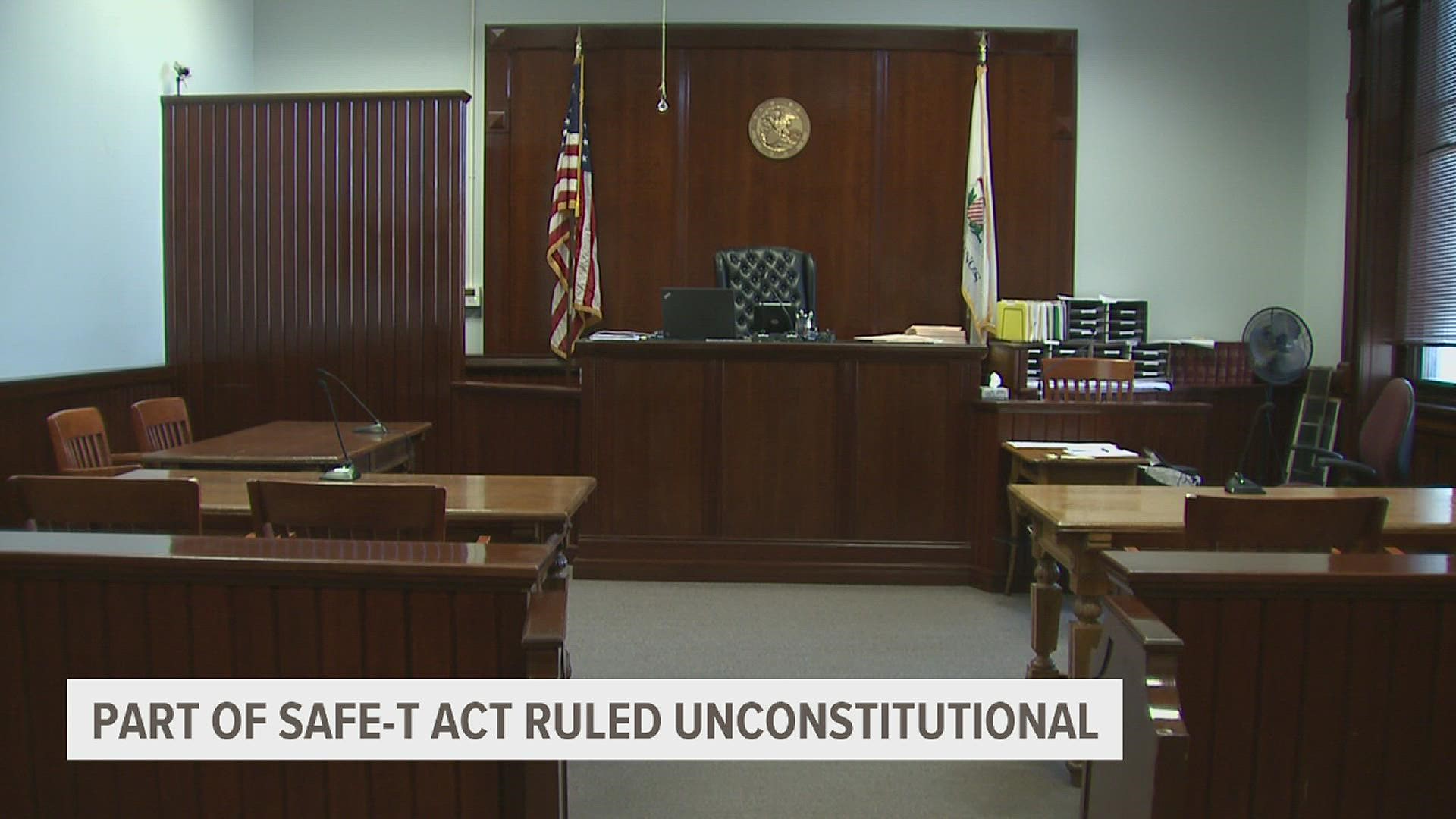MOLINE, Ill. — An Illinois judge has ruled a portion of the state's new SAFE-T Act is unconstitutional, just days before the provision was set to take effect on January 1, 2023.
Specifically, it is what's been referred to as the "no cash bail" provision, or the pretrial release portion of the SAFE-T Act.
The controversial and much-debated public safety bill changed, added to or created 170 to 200 laws, Jo Daviess County State's Attorney Chris Allendorf said.
Jo Daviess County is one of more than 60 counties named in this challenge to the SAFE-T Act. That includes Carroll, Fulton, Henderson, Knox, Lee, Mercer and Ogle counties in the Quad Cities viewing area.
Among them established new rules for bail and how to release suspects from jail before a trial. That's now on pause -- kind of.
"We think the effect at least in the short term is that the pre-trial release provisions, no cash bail, will not go into effect on January 1st, for those counties that were part of the suit," Allendorf said.
Knox County State's Attorney Jeremy Karlin is among the other attorneys who joined the lawsuit challenging the constitutionality of the bail reform bill.
"I just want to know what I’m supposed to do," Karlin said. "That’s why I joined the lawsuit. I wanted whatever decision was going to come down from a court, I wanted it to apply to my county."
For now, the status quo will continue in Knox County, Karlin said. However, it is unclear if that is the same case for the more than 30 counties not part of the lawsuit, Karlin added.
"That just sounds like chaos to me, but that's up to the [Illinois] Supreme Court," Allendorf said.
Now, it's a waiting game, as the Pritzker Administration appeals the trial court's ruling. Both Karlin and Allendorf did not know how long it could take before a decision is reached, but Karlin said he would expect it to be sooner rather than later.
Karlin said the Illinois State Supreme Court has several options when considering an appeal.
The state's high court could find the bail law constitutional and overturn the trial court's ruling. In addition, the court could agree with the lower court's ruling, but instead make different rules for how bail issues should be addressed. Or, the high court could find the law unconstitutional altogether and force the legislature back to the drawing board.
The ruling from Circuit Court Judge Thomas Cunnington is expected to only impact the bail and pretrial release provisions of the SAFE-T Act. Other parts of the SAFE-T Act, like policing reform, body cameras for law enforcement and complaint processes are not expected to be impacted by the ruling, both Karlin and Allendorf said.
As of Thursday, both state's attorneys are waiting on an official order detailing how exactly the ruling will be implemented. That official order must be filed before an appeal process can begin, Karlin said.
Governor Pritzker responded to the ruling in a statement, saying the ruling, "is a setback for the principles we fought to protect through the passage of the SAFE-T Act. The General Assembly and advocates worked to replace an antiquated criminal justice system with a system rooted in equity and fairness. We cannot and should not defend a system that fails to keep people safe by allowing those who are a threat to their community the ability to simply buy their way out of jail. I thank the Attorney General for his work on this case and look forward to the Illinois Supreme Court taking up the appeal as soon as possible."
Republican Illinois House Representative Tony McCombie from Savanna also responded to the ruling. She released this statement: "Today's ruling by Circuit Judge Thomas Cunnington was the correct one. Republicans have loudly and consistently voiced the many concerns with the SAFE-T Act since its passage during the lame-duck session nearly two years ago. Many provisions within the act put victims, law enforcement and communities throughout Illinois at-risk for disastrous outcomes. I am grateful the courts have ruled on the side of common-sense and am hopeful that any appeal will be upheld to protect Illinois families and the most vulnerable throughout the state."
Watch more news, weather and sports on News 8's YouTube channel

